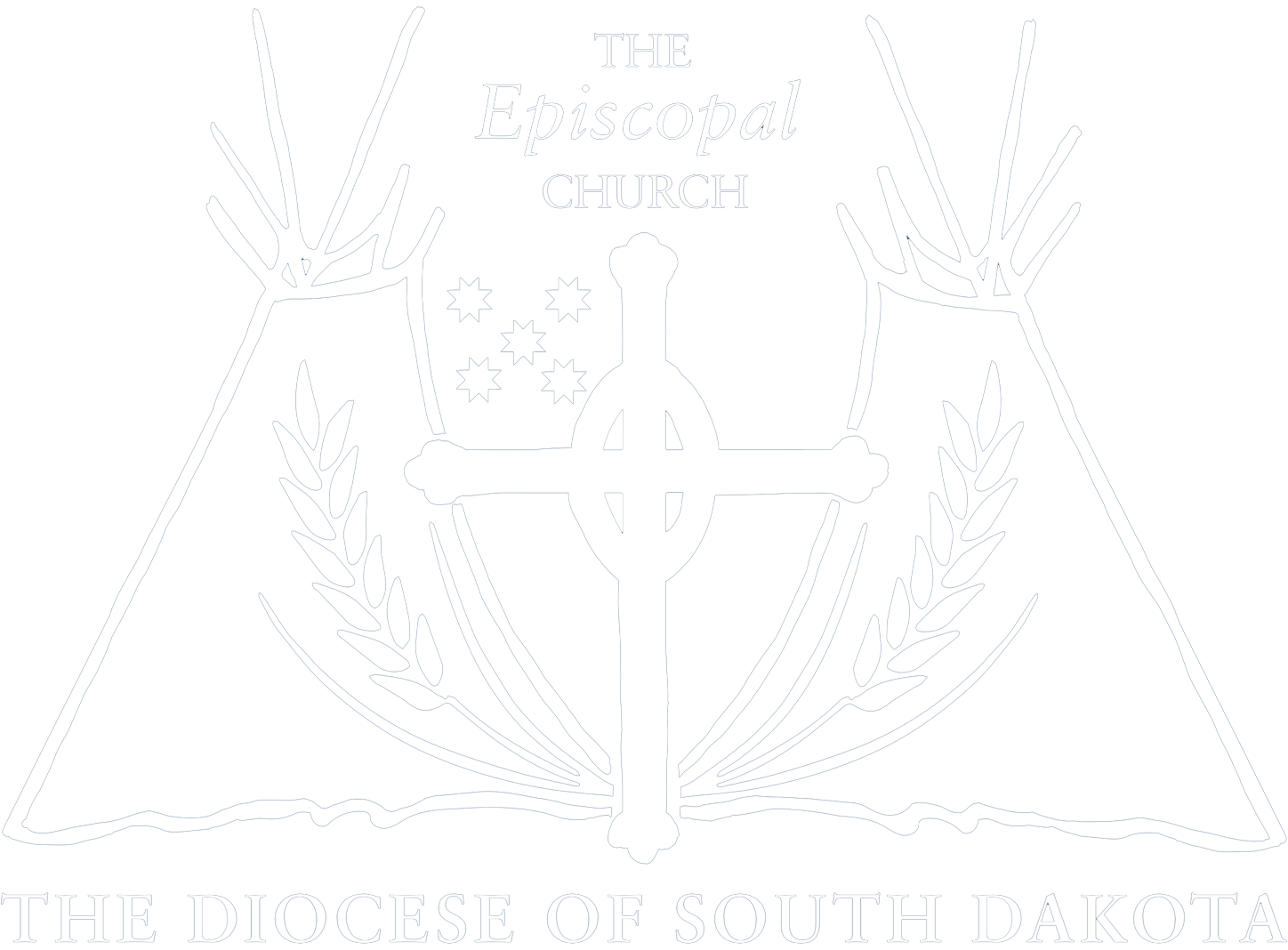Mark your calendar to virtually join this annual conference.
SAVE THE DATE: WINTER TALK CONFERENCE 2025
Jan. 18-20, 2025
Seminole, Oklahoma
Mark your calendar to virtually join this annual conference that honors and highlights Indigenous and Native American traditions and contributions within The Episcopal Church.
Winter Talk includes special greetings and speakers, music, presentations, panel discussions, and more.
The 2025 theme is “Coming to Center: Wholeness, Healing, and Right Relationship.”
A registration link for virtual attendance will be available soon.
Questions? Contact the Rev. Bradley Hauff, Indigenous missioner

What is the best Christmas present you have ever received?

"Missional Miles" Goes to Rosebud Mission!
https://youtu.be/rHF8IQRWzEg
Bishop Jonathan traveled to the Rosebud Episcopal Mission for a weekend visit (December 6-8). In this segment, the Rev. Annie Henninger shares her thoughts about where she finds God's joy in Rosebud Mission East. Slade, a college student in Vermillion and a child of the Rosebud who was confirmed at Calvary, Okreek discusses how he invites his friends to attend St. Paul's EpiscopalChurch and how he plans on using his gifts to transform the lives of others as a physical therapist. Additionally, you'll learn about a Christmas Giveaway project for the Rosebud Reservation's people. Next, Erroll and Zollie are interviewed at Holy Innocents, Parmelee, about their new church building being developed. Finally, you'll see pictures of the Episcopal Church of Jesus, Rosebud, and Trinity Episcopal Church, Mission.

What is your favorite Christmas Tradition?
Or what was a favorite Christmas Tradition?

Are you more grateful for snowballs or snowmen?

Describe your favorite Christmas weather.

Bishop Folts is pleased to announce that Brenda Lewis and Barbara Simpson will be ordained to the permanent diaconate at Calvary Episcopal Cathedral on Saturday, January 25th, the Feast Day of the Conversion of St. Paul, at 11:00 AM.
May God bless Brenda and Barbara as they prepare for holy orders and service as deacons in our Lord's church. Your presence and prayers are welcome.
Clergy attendees are asked to please wear red or beaded stoles.

What special cookie are you grateful to eat at Christmas time?

What is your favorite Christmas Food?

Are you more grateful for Egg Nog or Hot Cocoa?

Tell someone, One thing you are grateful for about them.

What is your favorite Christmas Day Tradition?

What Christmas carol are you always grateful to hear?

Are you more grateful to see Christmas decorations on houses or to do the decorating?

Share a Christmas memory that fills you with gratitude with friends, coworkers, or family,

Itanchan Warren Hawk, the Rev. Joe Hubbard, and Bishop Folts attended their first Executive Council meeting last week in New Brunswick, NJ. At this meeting, among other things, committee assignments were made. Itanchan Warren Hawk is on the Governance and Finance Committee, the Rev. Joe Hubbard is on the Finance Committee, and Bishop Folts was asked to be on the Committee on Mission and Ministry in Haiti. Attached is a letter from the Executive Council to the whole Church, a practice our new Presiding Bishop has asked to be brought back to life, and it's commended to you for your reading. https://mailchi.mp/episcopalchurch/a-message-to-the-episcopal-church-from-executive-council-mensaje-del-consejo-ejecutivo-a-la-iglesia-episcopal?e=c4cf69b941

Let us pray for all those affected by wildfires, the following prayer was shared from the Diocese of Colorado.
Lord, we ask for your protection from spreading wildfires across our beautiful state. We ask for protection of those fighting in harm's way. We pray for those coordinating efforts in support and relief.
We grieve for the loss of animal life, plants and trees, and the scarring of the earth. We are saddened for the original custodians of the land, the First Peoples of the land, and the poor and marginalized disproportionately affected by the fires. Turn our sadness into compassion.
O God, heavenly Father, who by thy Son Jesus Christ hast promised to all those who seek thy kingdom and its righteousness all things necessary to sustain their life: Send us, we entreat thee, in this time of need, such moderate rain and showers, that we may receive the fruits of the earth, to our comfort and to thy honor; through Jesus Christ our Lord. Amen. -Book of Common Prayer, pg 828, For Rain.

Episcopal Church’s Creation Care names
2024 Eco-Justice Fellows
Seven young adults have been named to The Episcopal Church’s second cohort of Eco-Justice Fellows, an innovative program that seeks to strengthen a faith-based response to ecological repair among new leaders.
Piloted by the church’s Department of Reconciliation, Justice, and Creation Care in collaboration with the Executive Council’s Task Force on Care of Creation and Environmental Racism, the program is designed to tackle specific environmental justice intersections and engage young individuals from diverse backgrounds.
The fellows, who receive a $2,750 stipend, will spend six to eight hours a week for five months receiving training in creation care theology and advocacy and developing a local ecojustice project in their congregation, institution, or diocese. They will also participate in a three-day retreat and receive mentorship coordinated by Michelle Dibblee, a Union Seminary graduate with extensive experience in faith formation and community organizing.
The 2024 Episcopal Eco-Justice Fellows are:
Mercy Irivwieri, Episcopal Diocese of Texas
Shane Keefer, Episcopal Diocese of Pennsylvania
William Lewis, Episcopal Diocese of Alabama
Lori Petrie, Episcopal Diocese of Chicago
Elizabeth Simpson-Falck, Episcopal Diocese of Chicago
Kristoff Strachan, Episcopal Diocese of North Carolina
Rylie Talmadge, Episcopal Diocese of South Carolina

Congratulations to Deanna Stands, the Santee Yankton Mission, the Niobrara Deanery, and The Episcopal Diocese of South Dakota! Well done! And thanks be to God for the House of Deputies passing this important resolution and prayer. Bishop Jonathan Folts
The House of Deputies at the 81st General Convention of The Episcopal Church voted unanimously to adopt A Prayer to Remember the Innocents to the liturgical church calendar. may this prayer be for the healing of the People and of this broken world. The Rev. Dr. Christina O'Hara.



